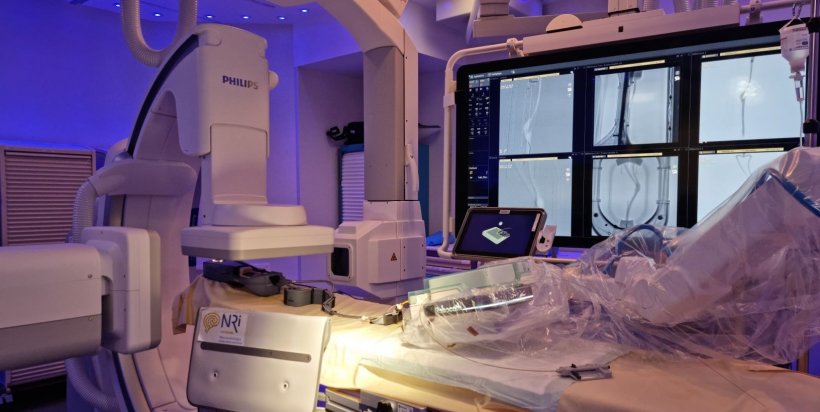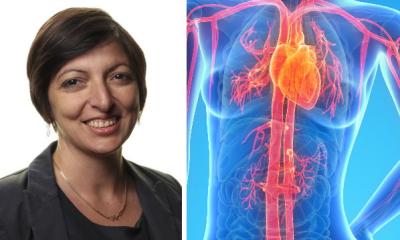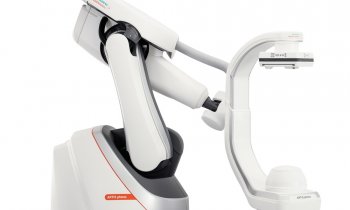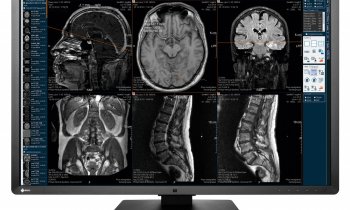
Image source: Robocath
News • Co-development research program
Improving stroke treatment with robotics
Medical robotics company Robocath and Rennes University Hospital announce the launch of a co-development research program using robotics to improve treatment for stroke victims.
With the support of Philips France, this program will be implemented over the next four years. It will focus on the use of robotics in treating strokes, the second most common cause of death globally after myocardial infarctions. The program will begin with a clinical study into the treatment of carotid artery disease using R-One, the first robotic platform developed by Robocath, which has been on the market since 2019. This first-generation robotic solution was designed to improve the treatment of cardiovascular disease by enhancing physicians’ movements through increased precision. It also helps medical staff to drastically reduce their exposure to X-rays.
Precision of movement is a key factor in treating stroke patients; the use of robotics will increase the success rate of these procedures
François Eugène
Following the clinical study, the partnership will become an active R&D collaboration aimed at improving and enhancing current and future generations of robotic solutions, based on the synergy between both parties’ skills and know-how.
Dr. François Eugène, Interventional Neuroradiologist at Rennes University Hospital, said: “I am delighted to be launching this scientific research partnership with Robocath and to be working with this passionate team. Robotics is already successfully used to treat coronary disease in humans. The benefits of this technology can also be applied to the treatment of certain neurovascular diseases. This is largely because precision of movement is a key factor in treating stroke patients; the use of robotics will increase the success rate of these procedures. I’m very excited to get started on the clinical study.”
Philippe Bencteux, President and Founder of Robocath, explained: “This unique partnership will enable Robocath to enter the next phase of its development strategy. The research program opens up promising new avenues for both our current and future generations of robotic solutions.”
Lucien Goffart, Robocath’s CEO, added: “This collaboration proves that there is considerable interest in robotics in the medical sector. It demonstrates the whole scope of potential applications in a range of specialist vascular fields. The combination of Dr. Eugène’s enthusiasm and the support of Philips France is the ideal recipe for the success of this research program, which will undoubtedly represent a pivotal moment in our company’s history.”
Source: Robocath
07.07.2021











